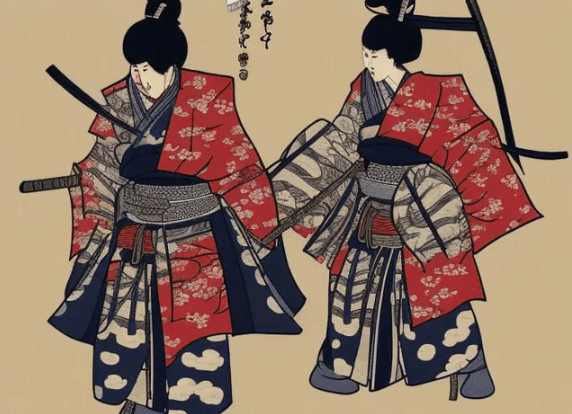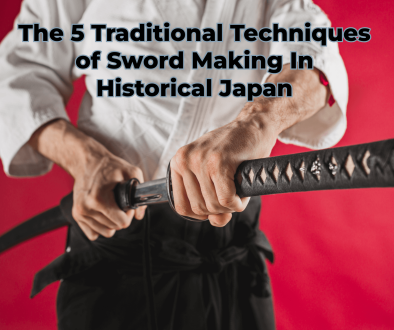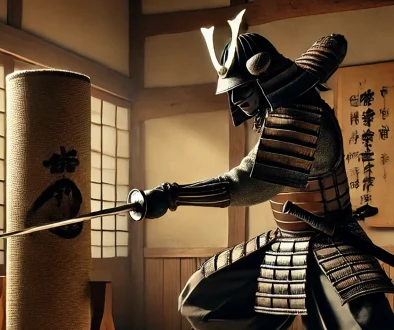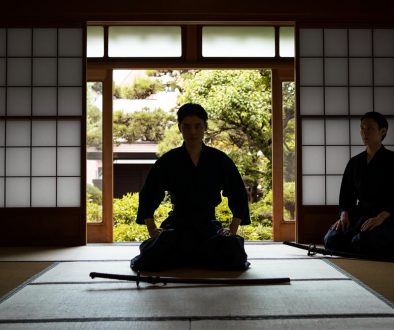Samurai Wives and Their Activities During Peaceful Times
Throughout the peaceful times, samurai wives did various tasks. These tasks include farming, Jigai, Chanin and Kyokaku. Let’s understand what these were in this article.
Jigai
During Japan’s early modern-day duration, samurai wives enjoyed the typical rituals of Jigai. Jigai was a ritual executed by ladies of a samurai family to atone for the embarrassment they brought upon their family members. It was carried out to secure the honor of the samurai household in case of an enemy intrusion.

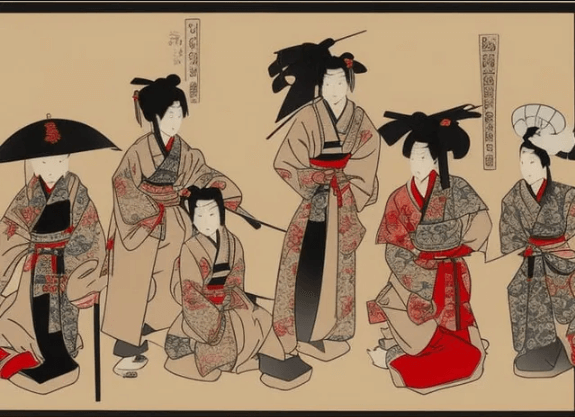
One of the most typical types of Seppuku was obligatory Seppuku, executed in cases of significant offenses. These offenses included corruption, robbery, unwarranted murder, and rape. A samurai could also be disgraced by carrying out Seppuku without prior approval.
For less serious crimes, samurai would perform Jigai for various reasons. These consisted of atoning for their offenses, safeguarding the honor of the samurai household, and revealing their pain tolerance.
Women of a samurai household also did the routines of Jigai in cases where their husband was a bad influence on the family members, causing them shame. Samurai wives performed Jigai for a range of other factors. Some thought executing it would protect the household’s honor in case their husband was a bad influence on the household. Others thought that Jigai was done to compensate for the sins their husband did to the family members.
Women of samurai homes likewise played an essential function in succession. Young participants of the samurai class had to have their parents and shogunal authorities approve their marriages. The samurai would then be granted a stipend based on his rank.
Many educated samurai entered federal government services. In the long run, the samurai expanded to become the leading caste in Japanese culture. During this duration, samurai wives played a vital role in structuring alliances between the homes.
Throughout the early modern period, samurai females were getting involved in combat. This can be seen in the letters of Orise, a samurai wife, who wrote about her husband’s activities in Akita.
Throughout the peaceful times, women played a major function in samurai houses. Their tasks ranged from home management to self-cultivation. They were expected to take care of the house and secure its honor. Their social duty was vital to developing partnerships between households.
During the Tokugawa duration, the samurai class did significant changes. Numerous samurai relied upon side-employments. Women in city areas had universal literacy rates. They also learned martial arts.
During the Edo period, women lost their status in the warrior class. They were known as Onna-Bugeisha, or “women warriors,” and were expected to safeguard their houses while the samurai were away. Their duties were much less noticeable than their male counterparts.
Before the introduction of the Ie-system in the 17th century, women continued to be independent of their husbands and possessed a feeling of identity. They could pick their names and had the alternative of living alone or having a mistress.

Women in provincial castle towns had little opportunity to learn more than managing their houses. They also had restricted accessibility to books and other educational materials. The ones who studied the arts were usually put into service with high-ranking households. Their education was frequently assisted by affluence. A small number of ladies even ended up being writers or reporters.
Among the most remarkable instances of a samurai women’s success was her ability to create letters on behalf of her husband. A lady called Hirata Orise was the wife of a well-known scholar. She relocated to Edo in 1818 and enjoyed the lifestyle. In her letters, she detailed her and her partner’s activities. Her letters provide an informative look at females’ roles in samurai households.

Chanin
Samurai wives had several crucial roles at this time. They played a crucial duty in social communication, in addition to succession. They were frequently hidden, and their roles greatly differed from those of men.
Samurai ladies were anticipated to be educated. They were expected to look after youngsters, elderly parents, and residential property and were essential for building alliances between homes. They attended temples, carried out rituals to forefathers, and had social commitments. However, they were not allowed to go shopping or entertain visitors.
Throughout the Aizu domain, samurai ladies had four choices. They can marry the shogun’s son or one of his daughters. They could do an arranged marriage with another samurai. They can additionally take a concubine.
In Aizu, samurai thought ladies ought to protect their honor. They should not fight dishonored men.
Samurai families would adopt a son to marry a daughter. They weren’t allowed to be involved in political matters. Their children learned martial arts, literary works, mathematics, and administration. Their little girls also learned samurai customs and styles. They went on to become housemaids for samurai households.
In Edo, the samurai wives played a large duty in the household. They performed rituals for their ancestors, taught their children, and participated in weddings. In ordinary samurai homes, they were left accountable for the household while their husbands were at job. In the castle, women rode in a palanquin and did not head out alone. They were also expected to protect their ancestral tablets.
Several males sent their daughters to private schools to learn martial arts. They also spent on extra education to send their daughters to a special school to learn to play the shamisen.
Kyokaku
During peaceful times, samurai wives enjoyed Kyokaku, a standard procedure that allowed them to rebel against injustice. In the Tokugawa shogunate, women were expected to conform to a code of filial piety.
Samurai wives were anticipated to be strong and educated. They had social commitments, too, such as entertaining guests and preparing food. They also needed to keep their minds clear and be honest.
Ladies were also expected to keep their family’s honor and deal with their husband’s moms and dads. They were also expected to follow the same code of conduct as males. During the Edo duration, samurai wives fought in the last battles of the period. They played an important duty in promoting communication and succession between samurai households.
During the Edo duration, women were expected to have good knowledge & education. The samurai class did not always control substantial wealth. Several samurai relied upon side jobs to make ends meet. They were also anticipated to prevent the temptations of money.
Ladies born into samurai households were anticipated to seek a man for protection and income. A woman would not have the right to fight, yet she would need to defend her household’s honor.
Females that were talented in the townsman class were taught samurai customs and functioned as housemaids for samurai households. They additionally contributed to family revenue by spinning and weaving.
Samurai wives also needed to keep the household running when their partners were far from the house.
Samurai wives would have to entertain guests and make conversation with them. After that, they needed to set out food and prepare gifts. They were expected to maintain their mind and body and not let their husband’s errors lead them to misery.
Farming
During the peaceful times of feudal Japan, ladies in samurai households enjoyed farming. The husbands were expected to be devoted, strong, and subservient and had to care for youngsters, old parents and handle the property. They weren’t allowed to take part in political events. They needed to obey their husbands and deal with their children.
In Japan, men needed to work as samurai or farmers. They also learned to run companies by themselves. They understood martial arts and also learned to read & write. They had the option to become monks if they wanted to. They can also marry a commoner.
In the Edo period, life was conducted according to strict Confucian principles. The leading families were expected to be literate and collect taxes. They were allowed to leave their towns just on special vacations. In exchange, they obtained food, presents, and land.
In feudal Japan, the samurai class was the ruling class. They wore 2 swords, called Daisho, and were paid by lords. They engaged in numerous local battles and were well-paid retainers of the Daimyo.
Some Daimyo had big estates, but they were not farmers. They had a few warriors who protected them. They made use of armor, swords, and a variety of tools to protect themselves. They developed alliances with other farmers, formed clans, and fought with other powerful clans.
Ladies of rich samurai households had political power and enjoyed influence. They didn’t need to perform physical labor but rarely became household heads. Their names were changed to those of their husbands.
In the Tokugawa period, the function of women transformed. They became educated and ended up being important in society. They were anticipated to be literate & educated. They had to understand how to be an effective wife. They were permitted to learn martial arts and were expected to help their husbands.
